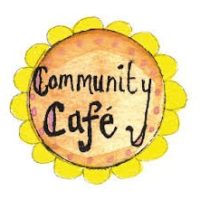Joey Bishop-Manton, Director, Mecklenburg CDSA
On November 30th a passionate and vocal group of folks invested in early intervention met for a Community Café at the Mecklenburg County CDSA. Community Cafes are modeled after the World Café whose tag line is “To Shape Our World through Conversations that Matter.” Kind of heady stuff but we know that it takes information and thoughtful conversation to facilitate change, and in our case we are working to bridge the “early intervention research to practice” gap. The purpose of the Café was to share information and gather ideas, questions, and feedback from community partners to ensure we are doing all we can to support families and their infants and toddlers with special needs. The CDSA picked this format for the meeting because we wanted to share information about evidenced-based practices in early intervention, and we wanted to encourage conversation and feedback about the practices that are being implemented in Mecklenburg County. The room was at capacity with a wide range of committed supporters of early intervention from local hospitals, EI providers, family members, educational partners, and advocacy groups.
The Café began by setting some ground rules for the 2 ½ hours we committed to spend with each other. All were encouraged to contribute their thoughts, listen to understand, link and connect ideas, and be open to insights and deeper questions.
Information was shared about research and recommended practices from the National Association for the Education of Young Children, the Individuals with Disabilities Education Act, the Division of Early Childhood, the Office of Special Education Programs, and from professional associations for Physical Therapists, Occupational Therapists, and Speech Language Pathologists. All of these agencies and associations support coaching, natural learning environment practices, and a primary provider approach to teaming.
Since 2009, the Mecklenburg CDSA has been working on implementing natural learning environment and coaching practices as research has shown these practices to be effective in building parent confidence and competence and promoting child learning. As a natural extension of these practices, the CDSA is piloting a primary service provider (PSP) approach to teaming on one infant-toddler team beginning in January 2017. The pilot will last from 18-24 months and data will be collected to include child and family outcomes, cost, frequency, and timeliness of services. We viewed a wonderful video from the early intervention program in Ohio that explains PSP.
Then the work really began! Table groups got together to discuss the following three questions:
- How do you think using coaching, natural learning environment practices, and a primary service provider approach to teaming will be helpful for children and families?
- What additional information do you need to inform families about evidenced-based early intervention practices, including this PSP pilot?
- What challenges do you foresee, and how can we plan for those?
Folks had about 15 minutes to discuss each question and there was not a quiet moment in the room for the next 45 minutes! At the end of the table discussions, the group came back together to “harvest” the thoughts, ideas, and questions captured by table facilitators. Participants appreciated being invited to the discussion and were very positive about natural learning environment and coaching practices. The group was also engaged in learning about, and supportive of, the PSP pilot. Comments about the pilot included:
- “Decreases the stress of scheduling and coordinating with multiple providers”
- “Increases the consistency of communication and collaboration between family and provider”
- “Builds parent confidence and competence”
- “Very family-centered”
- “Takes a multi-disciplinary approach; there are others to consult with”
- “Cuts down on the confusion for families about who is coming out to the home”
- “Team meets more frequently – better access to more expertise”
There were also some great questions about the pilot which is of course why we wanted to get folks together! Several groups discussed solutions to their own questions that included:
- “What about referrals from doctors who want a medical vs. educational focus?”
- Table group solution: Education! Visit doctors’ offices and share information about the model if they were not able to attend Community Cafés
- “How can we be sure that a primary provider won’t miss something if it’s not their area of expertise?”
- Table group solution: PSP teaming models allow for support from an entire team, plus joint and secondary visits. Plan: Each discipline observes other disciplines and can share videos with the team.
A “Frequently Asked Questions” (FAQ) document was developed to address questions collected during the Café and sent to all participants as well as to CDSA network providers. See the Community Cafe FAQs about PSP Pilot for answers to more questions such as, “Will we be able to serve the same number of children with the PSP model?” “How is it handled when a child has needs outside of the treating therapist’s specialty?” “How is the Primary Service Provider chosen and can he/she change?” “How is billing handled for joint visits and secondary supports?”
Thoughtful questions and positive feedback were provided throughout the event which, (I think this is worth mentioning again!) was 2 ½ hours! The passion and energy of the group was awesome; every person there was focused on how to provide the best support possible to children and families in our community. The input and feedback the CDSA received from the Café was invaluable.
If you wanted to attend but couldn’t, please come to our next Community Café on March 9, 2017 from 11:00 – 1:30. We would love to see and hear from you! And be on the lookout for our next blog which will outline the specifics about how our Primary Service Provider pilot will work.






No comments yet.